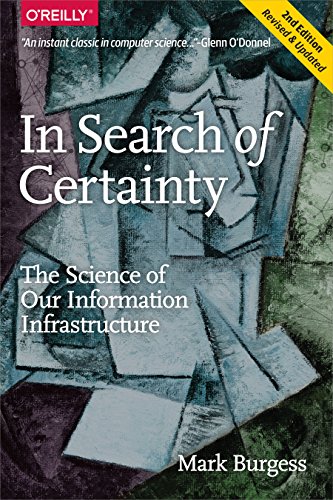

Most ebook files are in PDF format, so you can easily read them using various software such as Foxit Reader or directly on the Google Chrome browser.
Some ebook files are released by publishers in other formats such as .awz, .mobi, .epub, .fb2, etc. You may need to install specific software to read these formats on mobile/PC, such as Calibre.
Please read the tutorial at this link: https://ebookbell.com/faq
We offer FREE conversion to the popular formats you request; however, this may take some time. Therefore, right after payment, please email us, and we will try to provide the service as quickly as possible.
For some exceptional file formats or broken links (if any), please refrain from opening any disputes. Instead, email us first, and we will try to assist within a maximum of 6 hours.
EbookBell Team

4.4
72 reviewsQuite soon, the world’s information infrastructure is going to reach a level of scale and complexity that will force scientists and engineers to approach it in an entirely new way. The familiar notions of command and control are being thwarted by realities of a faster, denser world of communication where choice, variety, and indeterminism rule. The myth of the machine that does exactly what we tell it has come to an end.
What makes us think we can rely on all this technology? What keeps it together today, and how might it work tomorrow? Will we know how to build the next generation—or will we be lulled into a stupor of dependence brought about by its conveniences?
In this book, Mark Burgess focuses on the impact of computers and information on our modern infrastructure by taking you from the roots of science to the principles behind system operation and design. To shape the future of technology, we need to understand how it works—or else what we don’t understand will end up shaping us.
This book explores this subject in three parts: